
Mary Louise "Meryl" Streep is an American actress. Known for her versatility and adept accent work, she has been described as "the best actress of her generation". She has received numerous accolades throughout her career spanning over four decades, including a record 21 Academy Award nominations, winning three, and a record 34 Golden Globe Award nominations, winning eight.
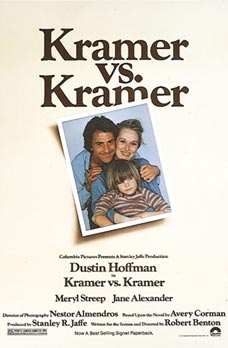
Kramer vs. Kramer is a 1979 American legal drama written and directed by Robert Benton, based on Avery Corman's 1977 novel. The film stars Dustin Hoffman, Meryl Streep, Justin Henry and Jane Alexander. It tells the story of a couple's divorce, its impact on their young son, and the subsequent evolution of their relationship and views on parenting. Kramer vs. Kramer explores the psychology and fallout of divorce, and touches on prevailing or emerging social issues, such as gender roles, fathers' rights, work-life balance, and single parents.

John William Cheever was an American short story writer and novelist. He is sometimes called "the Chekhov of the suburbs". His fiction is mostly set in the Upper East Side of Manhattan; the Westchester suburbs; old New England villages based on various South Shore towns around Quincy, Massachusetts, where he was born; and Italy, especially Rome. His short stories included "The Enormous Radio", "Goodbye, My Brother", "The Five-Forty-Eight", "The Country Husband", and "The Swimmer", and he also wrote five novels: The Wapshot Chronicle , The Wapshot Scandal, Bullet Park (1969), Falconer (1977) and a novella, Oh What a Paradise It Seems (1982).
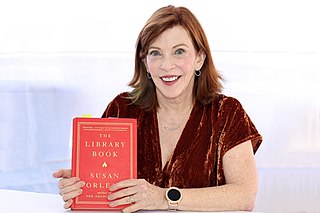
Susan Orlean is an American journalist, television writer, and bestselling author of The Orchid Thief and The Library Book. She has been a staff writer for The New Yorker since 1992, and has contributed articles to many magazines including Vogue, Rolling Stone, Esquire, and Outside. In 2021, Orlean joined the writing team of HBO comedy series How To with John Wilson.
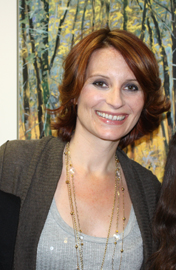
Meggin Patricia Cabot is an American novelist. She has written and published over 50 novels of young adult and adult fiction and is best known for her young adult series The Princess Diaries, which was later adapted by Walt Disney Pictures into two feature films. Cabot has been the recipient of numerous book awards, including the New York Public Library Books for the Teen Age, the American Library Association Quick Pick for Reluctant Readers, the Tennessee Volunteer State TASL Book Award, the Book Sense Pick, the Evergreen Young Adult Book Award, the IRA/CBC Young Adult Choice, and many others. She has also had number-one New York Times bestsellers, and more than 25 million copies of her books are in print across the world.

The Hours, a 1998 novel by Michael Cunningham, is a tribute to Virginia Woolf's 1923 work Mrs. Dalloway; Cunningham emulates elements of Woolf's writing style while revisiting some of her themes within different settings. The Hours won the 1999 Pulitzer Prize for Fiction and the 1999 PEN/Faulkner Award for Fiction, and was later made into an Oscar-winning 2002 film of the same name.
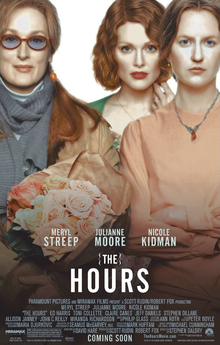
The Hours is a 2002 psychological drama film directed by Stephen Daldry and starring Nicole Kidman, Julianne Moore and Meryl Streep. Supporting roles are played by Ed Harris, John C. Reilly, Stephen Dillane, Jeff Daniels, Miranda Richardson, Allison Janney, Toni Collette, Claire Danes, and Eileen Atkins. The screenplay by David Hare is based on Michael Cunningham's 1999 Pulitzer Prize-winning novel of the same name.
John Bernard Hofsiss was an American theatre, film, and television director. He received a Tony Award for his direction of The Elephant Man on Broadway, the youngest director to have ever received it at the time. The production also garnered him a Drama Desk Award, Outer Critics Circle Award, Obie Award, and New York Drama Critics Circle Award. Director of Family Secrets in the year 1984; starring Melissa Gilbert, James Spader, Stefanie Powers, and Maureen Stapleton.

The French Lieutenant's Woman is a 1981 British romantic drama film directed by Karel Reisz, produced by Leon Clore, and adapted by the playwright Harold Pinter. It is based on The French Lieutenant's Woman, a 1969 novel by John Fowles. The music score is by Carl Davis and the cinematography by Freddie Francis.
The Five-Forty-Eight is a short story written by John Cheever that was originally published in the April 10, 1954, issue of The New Yorker and later collected in The Housebreaker of Shady Hill and Other Stories (1958) and The Stories of John Cheever (1978).

Mary Willa "Mamie" Gummer is an American actress. She starred in the title role of The CW series Emily Owens, M.D. (2012–2013), and played the recurring role of Nancy Crozier on The Good Wife (2010–2015) and its spin-off, The Good Fight (2018). She has also appeared in the films Evening (2007), Side Effects (2013), Cake (2014), and Ricki and the Flash (2015). Gummer was nominated for the 2016 Drama Desk Award for Outstanding Actress in a Play for the original production of Ugly Lies the Bone. She is the daughter of Don Gummer and Meryl Streep.
"The Enormous Radio" is a short story by American author John Cheever. It first appeared in the May 17, 1947, issue of The New Yorker, and was subsequently collected in The Enormous Radio and Other Stories., 55 Short Stories from the New Yorker, and The Stories of John Cheever.

The Housebreaker of Shady Hill and Other Stories is a collection of short fiction by John Cheever. Composed of eight short stories, the volume was first published by Harper & Bros. in 1958. Reissued by Hillman/MacFadden in 1961, the works are included in The Stories of John Cheever (1978). The works were originally published individually in The New Yorker.

Florence Foster Jenkins is a 2016 biographical film directed by Stephen Frears and written by Nicholas Martin and Julia Kogan. It stars Meryl Streep as Florence Foster Jenkins, a New York heiress known for her generosity and poor singing. Hugh Grant plays her manager and long-time companion, St. Clair Bayfield. Other cast members include Simon Helberg, Rebecca Ferguson, and Nina Arianda.
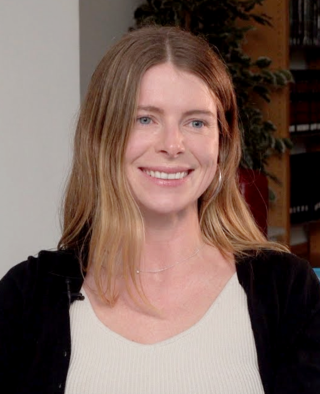
Emma Cline is an American writer and novelist from California. She published her first novel, The Girls, in 2016, to positive reviews. The book was shortlisted for the John Leonard Prize from the National Book Critics Circle and the Center for Fiction First Novel Prize. Her story collection, Daddy, was published in 2020, and her second novel, The Guest, was published in 2023. Her stories have been published in The New Yorker, Tin House, Granta, and The Paris Review. In 2017, Cline was named one of Granta's Best of Young American Novelists, and Forbes named her one of their "30 Under 30 in Media". She is a recipient of the Plimpton Prize and was awarded a Guggenheim Fellowship.

Let Them All Talk is a 2020 American comedy-drama film directed by Steven Soderbergh from a screenplay by Deborah Eisenberg. The film stars Meryl Streep, Dianne Wiest, Candice Bergen, Lucas Hedges, and Gemma Chan. Much of the dialogue was improvised by the cast, and Soderbergh shot the film using natural light and little equipment aboard the Queen Mary 2.

The Enormous Radio and Other Stories is a collection of short fiction by John Cheever published in 1953 by Funk and Wagnalls. All fourteen stories were first published individually in The New Yorker. These works are included in The Stories of John Cheever (1978) published by Alfred A. Knopf.

The Brigadier and the Golf Widow is a collection of short fiction by John Cheever, published by Harper and Row in 1964. These sixteen works were first published individually in The New Yorker. The works also appears in The Stories of John Cheever (1978).

Some People, Places and Things That Will Not Appear In My Next Novel is a collection of short fiction by John Cheever, published by Harper and Bros. in 1961. These nine short stories first appeared individually in The New Yorker or Esquire magazines. These works are included in the collection The Stories of John Cheever (1978), published by Alfred A. Knopf.

The World of Apples is the sixth collection of short fiction by author John Cheever, published in 1973 by Alfred A. Knopf. The ten stories originally appeared individually in The New Yorker, Esquire, The Saturday Evening Post or Playboy.




















